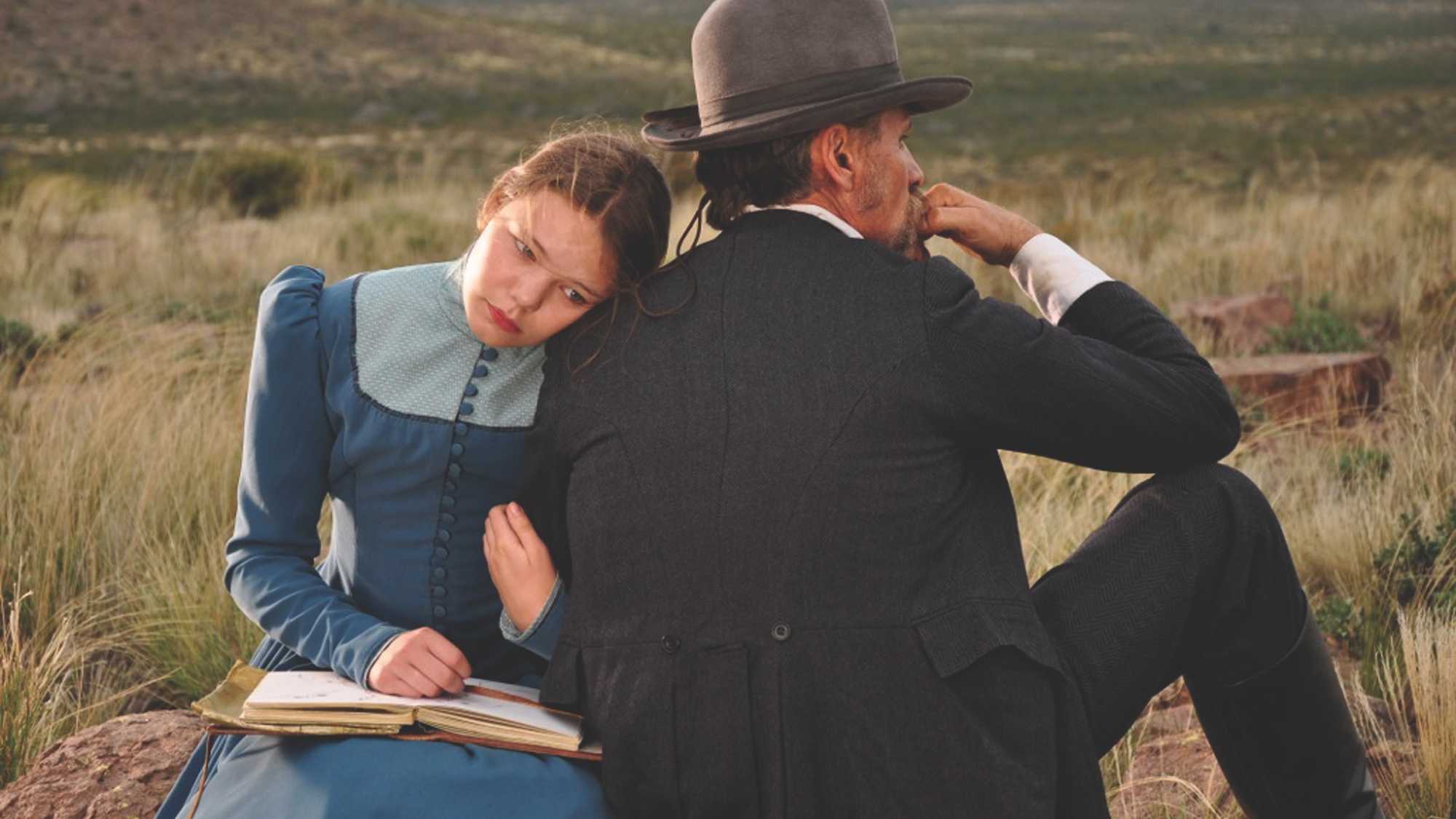Viggo Mortensen is a Danish engineer who adopts military garb to search for his fugitive daughter in in the wilderness of 19th-century Patagonia. Lisandro Alonso’s surreal drama is as enigmatic as it is compelling.

A work of tremendous beauty and a source of continual surprise, affirming the powers of the medium while expanding, in more ways than one, into new dimensions.
Screened as part of NZIFF 2015
Jauja 2014
In Spanish the word jauja (pronounced ‘how-ha’) means a land of milk and honey. The final act of Argentine director Lisandro Alonso’s enigmatic film may leave you wondering whether you’ve reached that destination or not. Set largely in Patagonia in the late 19th century, the film opens with a group of Argentine officers, accompanied by a Danish engineer (Viggo Mortensen) and his teenage daughter, as they plot to take over the region. But when the girl elopes with an Argentine soldier, he abandons camp to track them down. His solitary trek through the wilderness and rare encounters with its denizens take on increasingly surreal overtones.
“I’ve now seen Lisandro Alonso’s captivating, unearthly Jauja four times, and I don’t think I’m any closer to telling you what it’s all about… But watching Jauja, which is certainly one of the best films of the year, I never once doubted that I was in the hands of a master filmmaker. For all its seeming austerity, the film pulls you along with incredible force – not unlike the way it pulls its lonely protagonist along on his quixotic, dreamlike journey…
Alonso has a lot on his mind, but he’s interested in casting a spell more than sending a message, in texture, sound, and image more than narrative. As he proceeds through this dreamscape, Dinesen [Mortensen] watches his reflection shimmer in pools of water; he looks up at a night sky of supernatural beauty; the ground around him becomes more volcanic. Meanwhile, a third act encounter in a cave sends the film further into the realm of the surreal – Rip Van Winkle by way of David Lynch – and the final scenes are a what-the-fuck of epic proportions, suggesting both rebirth and abject futility. Jauja is a rapturously bizarre movie. That’s its secret, intoxicating power; the less you understand, the more mesmerized you are.” — Bilge Ebiri, New York